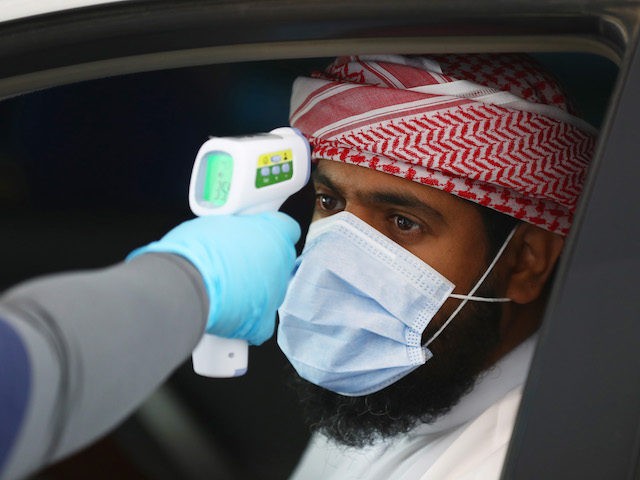China’s state-run propaganda outlet Global Times on Tuesday trumpeted several diplomatic breakthroughs between China and the United Arab Emirates (UAE) that sprung from Foreign Minister Wang Yi’s ongoing tour of the Middle East, including a deal between Chinese pharmaceutical company Sinopharm and Group 42, an Emirati firm, to produce Chinese coronavirus vaccines in the UAE.
Wang’s trip comes as China labors to ramp up its involvement and expand its economic reach in the region. Notably, the foreign minister visited Tehran several days ago, which resulted in the signing of a Sino-Iranian “Comprehensive Strategic Partnership” agreement aimed at limited U.S. influence.
While in the UAE, Wang and the Emirati government negotiated several agreements with respect to the ongoing Chinese coronavirus pandemic, including an “agreement in principle” on mutual recognition of health codes that could restore free travel between the countries.
On Sunday, Wang and his counterpart, UAE Foreign Minister Sheikh Abdullah bin Zayed al-Nahyan, attended an online ceremony marking the launch of the joint production venture between Sinopharm and Group 42. The UAE plant selected for the joint venture can reportedly produce up to 200 million doses of Sinopharm’s vaccine per year. The country’s population is roughly 10 million, so the plant alone could theoretically produce enough doses to fully vaccinate the UAE while leaving the vast majority of its output for export.
China and the UAE previously cooperated in conducting Phase III trials for one of Sinopharm’s Chinese coronavirus vaccine candidates, which Wang heavily emphasized during his trip.
The plant’s high production capacity may prove a moot point should the Sino-Emirati venture struggle to find enthusiastic buyers. The Chinese Communist Party has thus far seen only limited success in distributing its domestic coronavirus vaccines to other countries.
Testing data from Brazilian trials of CoronaVac, the Chinese developed vaccine by Sinovac Biotech, found it to be only 50.38 percent effective against the coronavirus, just exceeding the 50-percent bare minimum threshold for international approval. Researchers originally projected a 78-percent efficacy rate.
Sinopharm’s vaccine, by contrast, boasts a 72.51 percent efficacy rate, significantly better than CoronaVac and yet still far below American vaccines from Pfizer and Moderna which have efficacy rates in the mid-90s.
Rogue states like Venezuela have eagerly purchased Chinese vaccine candidate doses, though nominally China-skeptic countries have also signed deals with Beijing amid the pandemic. One of China’s biggest successes came in Brazil, where longtime critic of Chinese vaccines and self-proclaimed anti-communist President Jair Bolsonaro abruptly agreed to import the materials to manufacture Coronavac, the less effective of the two Chinese options.
In Iran, colloquial concerns about vaccines more generally may impede Chinese sales efforts by weakening demand in the country, despite the recent diplomatic agreements. In early February, Ayatollah Abbas Tabrizian made headlines with his claim that Chinese coronavirus vaccine recipients would “become homosexuals.” Homosexuality is not legal in Muslim-majority Iran. No vaccine studies have found any evidence linking any of the currently circulating Chinese coronavirus vaccines with changes in sexual orientation.

COMMENTS
Please let us know if you're having issues with commenting.